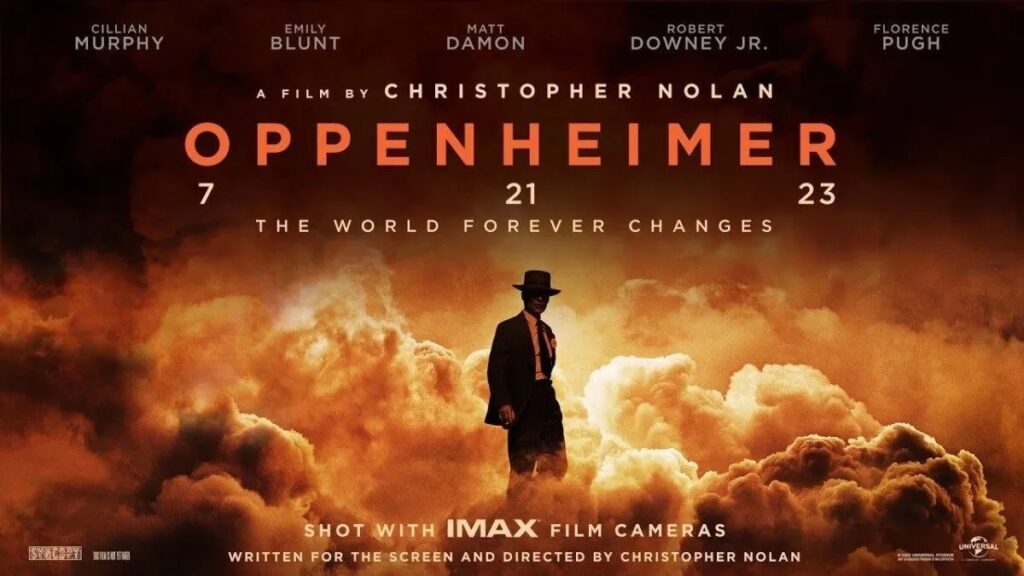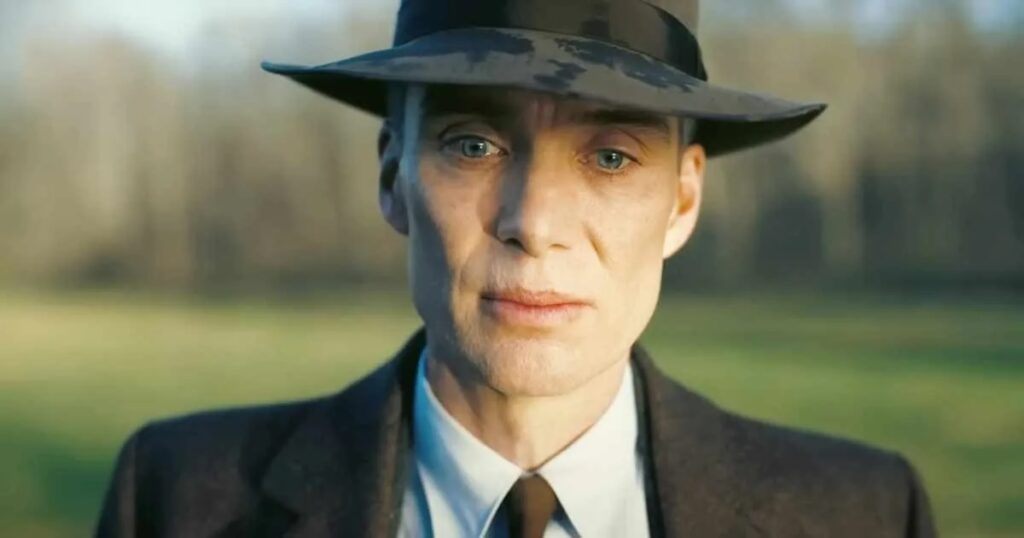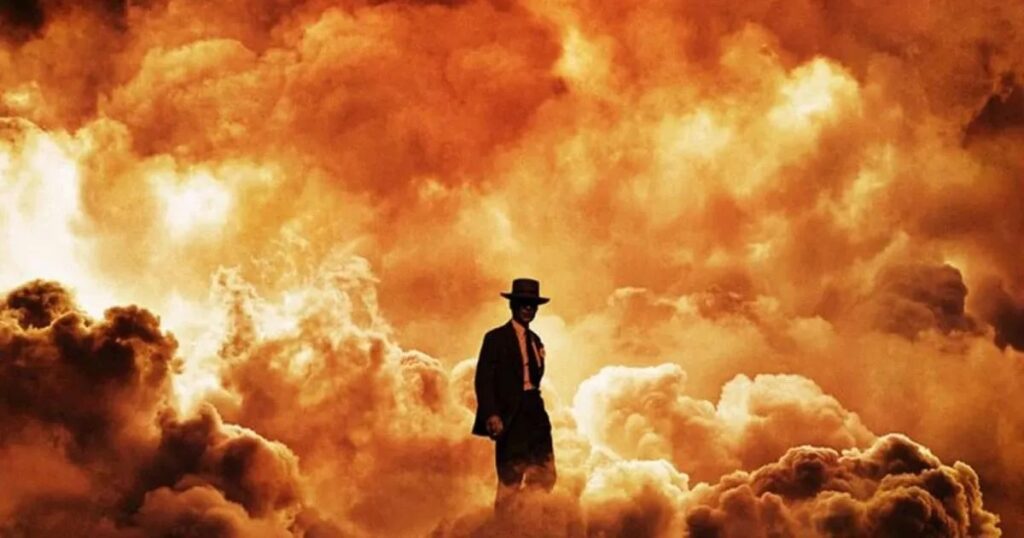Destroyer of Worlds

Oppenheimer and Hiroshima Day
August 6th, aka yesterday, was Hiroshima Day, commemorating the dropping of the Atomic Bomb on Japan in 1945.
I joined my first anti-nuclear protest march with my family when I was five years old. In the 1960’s, even in distant New Zealand, nuclear war was on our minds. Here in the United States my friends tell me of practice drills in school, hiding under their desks in case someone decided to blow up the world. If it weren’t for Russian submarine commander, Vasily Aleksandrovich Arkhipov, who prevented the launch of a Soviet nuclear weapon during the Cuba Missile Crisis, we very well might have.
But that’s another story. This month, we are treated to the story of the ‘father of the atomic bomb’, Robert Oppenheimer, brilliantly told in Christopher Nolan’s latest film. I’ve watched it twice, leaving me reflecting anew on what happens when humans get their hands on the powers of the Gods.
The Trinity test
First came the flash like ‘the light of a thousand suns’. The air boiled with nuclear fire as the first mushroom cloud rose 10,000 feet into the sky, portending doom.
Oppenheimer, gazing in horror and wonder at what he had wrought, recited these words from the sacred text of the Bhagavad Gita:
“I am become death, the destroyer of worlds.”
Oppenheimer — The Film
This review contains a few plot spoilers but I don’t suppose it matters. After all, we all know what happened. The US built the bomb. It was used against humans. Twice. Hundreds of thousands of Japanese people died, 85% of them civilians. The war ended.
Would far more people have died if the US invaded Japan with conventional weapons? Would the war have ended soon anyway? Would the massed Russian forces on Japan’s border have led to Japan’s quick surrender? Was the primary motive in using the bombs to scare the Russians?
The justification for the US government’s use of atomic weapons against humans is still debated 78 years later. There seem to be more questions than answers.
But this film is not the story of the atomic bomb. It is the story of the man who oversaw its creation. He did not act alone. This took the vast resources of the world’s most powerful nation: requiring more than 150,000 people, two billion $ of public treasure (that’s 1945 dollars) and a bunch of the world’s greatest physicists. Many of these scientists were German Jews who’d escaped Hitler’s persecution.
“We’ve got one hope. Anti-semitism,” remarked Oppenheimer.
The first half of the film is about those scientists, the role they played and their inner and outer conflicts. Some had their doubts about the wisdom and morality of unleashing this dreadful new power on the world. As Oppenheimer said:
“I don’t know if we can be trusted with such a weapon. But I know the Nazis can’t. We have no choice.”

But the bomb was not used against the Nazis. They were defeated before the atomic bomb was complete.
Yet Japan fought on. The scientists had joined the project to beat the Nazis. Now they questioned the morality of continuing.
The US government and the military suffered no such inner conflict. They wanted a bomb and they wanted it fast. And, as often happens, the government got what they wanted.
Nolan’s script is a delight. The dialogue is sparsely sprinkled with wit, seeming perfectly natural in this least funny of situations.
One of my favorite moments:
General Leslie Groves: Are we saying there’s a chance that when we push that button, we destroy the world?
Oppenheimer: Chances are near zero.
General Leslie Groves: Near zero?
Oppenheimer: What do you want from theory alone?
General Leslie Groves: Zero would be nice.

Nolan’s cinematography makes it well worth the iMAX format. Much of the time I felt that I was somehow inside Oppenheimer’s mind. It’s those bewitching Cillian Murphy eyes, up close. Haunting.
Capturing a long, complex story like this in less than 3 hours is very challenging. The tight focus on the central character drew me in closer, creating a multi-layered experience. I enjoyed the second screening even more.
The film was based on the book, American Prometheus, which contains far more information, but far less emotion. I’m listening to it. I’m on Chapter 10, with 21 hours to go…

The Players
Cillian Murphy stars as Oppenheimer. It is hard to believe that this is his first leading role in a major film. His eyes won’t let me sleep. Oscar worthy.
Robert Downey Jr seems like a different person. It’s incredible to see such a recognizable actor transform himself into the cunning, manipulative Lewis Strauss.
Matt Damon is perfect as the self assured, arrow-straight General Groves.
Emily Blunt plays Oppenheimer’s wife, Kitty, in one of her best performances. Her ruthlessly loyal, deft dissection of the prosecutor in Oppenheimer’s hearing was delicious!
Kenneth Branagh — one of my heroes, takes a minor role as the Danish physics genius, Niels Bohr.
Nolan, his screenplay and this story seem to have inspired multiple superstars to take whatever they could get, just to be a part of it. Which should say something about the quality and importance of Nolan’s masterpiece.
I guess this kind of made it easier to achieve perfect casting.
I would have watched this film for its historical significance alone. But Nolan’s film is not just an important slice of history, it is visual storytelling at its finest.
